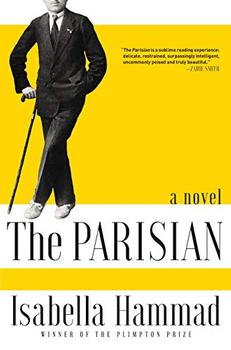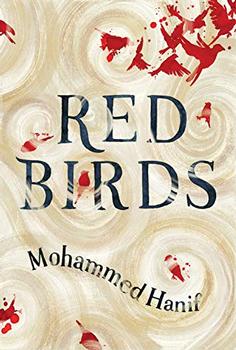Summary | Excerpt | Reviews | Beyond the book | Read-Alikes | Genres & Themes | Author Bio

One Hundred Years of Solitude meets The Kite Runner in Saddam Hussein's Iraq.
On the third day of Ramadan, the village wakes to find the severed heads of nine of its sons stacked in banana crates by the bus stop. One of them belonged to one of the most wanted men in Iraq, known to his friends as Ibrahim the Fated. How did this good and humble man earn the enmity of so many? What did he do to deserve such a death?
The answer lies in his lifelong friendship with Abdullah Kafka and Tariq the Befuddled, who each have their own remarkable stories to tell. It lies on the scarred, irradiated battlefields of the Gulf War and in the ashes of a revolution strangled in its cradle. It lies in the steadfast love of his wife and the festering scorn of his daughter.
And, above all, it lies behind the locked gates of the President's gardens, buried alongside the countless victims of a pitiless reign of terror.
We might already know the cruel end that awaits Ibrahim but his life's story and those of his fellow citizens along the way make for a compelling narrative precisely because of their essential ordinariness. Occasionally the (translated) sentences feel a little belabored but they don't detract from this visceral and touching story of everyday lives carved hollow by war in a country the West largely seems to have forgotten...continued
Full Review
 (665 words)
(665 words)
(Reviewed by Poornima Apte).
 Saddam Hussein, Iraq's dictator, ruled the country with an iron fist under the guise of numerous grandiose titles including President and The Knight of the Arab Nation, for nearly twenty-five years (1979-2003). In The President's Gardens, the character Ibrahim's most surreal job is to bury the people killed by the President's retinue almost every day. Such horrific atrocities were pretty commonplace under Hussein's regime, with the dictator disposing of people who showed even the slightest disloyalty toward him.
Saddam Hussein, Iraq's dictator, ruled the country with an iron fist under the guise of numerous grandiose titles including President and The Knight of the Arab Nation, for nearly twenty-five years (1979-2003). In The President's Gardens, the character Ibrahim's most surreal job is to bury the people killed by the President's retinue almost every day. Such horrific atrocities were pretty commonplace under Hussein's regime, with the dictator disposing of people who showed even the slightest disloyalty toward him.
During his tenure he maintained a facade of impenetrability, always having his hair colored and, because he walked with a limp, insisting on being filmed only for a few short minutes at a time. He might have ...

If you liked The President's Gardens, try these:

by Isabella Hammad
Published 2019
A masterful debut novel by Plimpton Prize winner Isabella Hammad, The Parisian illuminates a pivotal period of Palestinian history through the journey and romances of one young man, from his studies in France during World War I to his return to Palestine at the dawn of its battle for independence.

by Mohammed Hanif
Published 2019
A powerful novel about war, family and love, from the bestselling, prize-winning author dubbed 'Pakistan's brightest voice.' (Guardian)